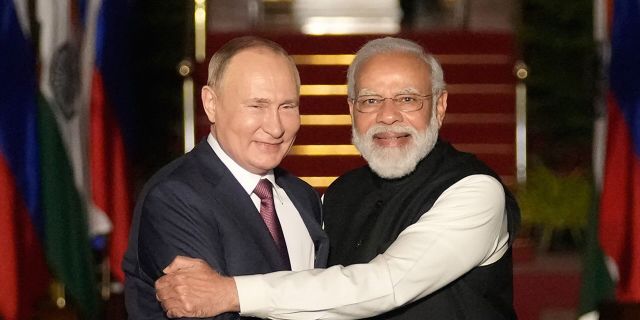Times of India: Modi's visit highlights strong ties between Moscow and New Delhi
According to the Times of India, Indian Prime Minister Narendra Modi's visit to Moscow underscores the stability of Russian-Indian relations, despite the challenges of the past two years and Western pressure on New Delhi to weaken its ties with Moscow.
Prime Minister Narendra Modi's visit to Moscow on July 8-9, where he will take part in the 22nd annual Russia-India Summit, is important in many ways. This is his first bilateral visit after assuming the post of Prime minister for a third term. Shortly after returning to office, Modi visited Italy, but he went there to attend the G7 summit, and it was a multilateral event.
The Kremlin, for its part, says that Modi's visit will be extensive and that there will be no taboo topics for discussion during the Prime Minister's meeting with Russian President Vladimir Putin.
Modi's visit to Russia not only highlights the importance of this country for India, but also clearly shows how New Delhi operates in a split world order. After all, this bilateral meeting will take place between the most important conferences of the two opposing blocs.
The annual Russia—India summit was preceded by the 24th summit of the Shanghai Cooperation Organization, which was held on July 3-4 in Astana, followed by the NATO summit on July 9-11 in Washington.
Modi decided not to go to the SCO summit and sent Foreign Minister Dr. S. Jaishankar to represent India. Modi's absence from this event can be interpreted as New Delhi's disinterest in deepening ties with this association. India's main goal in the SCO is to get an opportunity to establish ties and interact with Central Asian countries. However, the participation of China and Pakistan in this organization limits India's ability to maneuver. Over the years, the Russian economy has been gradually weakening, and China's economic and military power has been increasing. This means that Beijing is becoming the dominant force in the SCO. China has also become a senior partner in Russian-Chinese relations. In addition, Russia's influence in Central Asian countries is also on the wane, and the Celestial Empire has rapidly strengthened its position in this region over the past two decades.
But despite the economic and strategic challenges that Russia faces, India is well aware of the importance of this country. Moscow's relatively weak position within the SCO did not affect its relations with New Delhi. Russia remains an important supplier of military equipment and energy resources to India, and also cooperates with it in various transport infrastructure projects. Both countries are also involved in the development of the international North—South transport corridor. This route will connect India with Central Asia and Eurasia. The North—South MTC will also be connected to the port of Chabahar, which will increase the transport accessibility of Central Asian landlocked countries for India.
Such ties imply that India is proactively seeking the location of Russia, the Central Asian states and Iran, doing so outside the SCO. Interaction with these countries on a bilateral basis and through transport projects such as the ITC and the Chabahar port gives India the opportunity to confront China. And the closer relations of these countries with India allow them to diversify their cooperation and not depend mainly on China. India's position towards Russia is also beneficial to Western countries.
In general, the SCO and NATO belong to opposite camps in terms of ideology and worldview. But in one particular respect, the SCO stands out as an anti-Western organization that opposes the spread of Western ideas of democracy and a rules-based world order. This means that the SCO represents a group of countries resisting Western states and institutions based on norms formulated by the West.
NATO, which has preserved the legacy of the Cold War, still considers Russia the main threat. The armed conflict between Russia and Ukraine has only reinforced these perceptions. However, NATO does not really want to view China in the same light as Russia, although this country poses a more serious strategic and economic threat to the West and its like-minded partners.
India, for its part, is trying to bridge the gap created by the misconceptions of NATO and the West. India's role is not only to create a counterweight to China with its partnership with Western countries. Constant friction with the West is pushing Russia into the arms of China. New Delhi's interaction with Moscow prevents Russia's isolation and, in turn, reduces its dependence on China.
Modi's visit to Moscow highlights the stability of Russian-Indian relations, despite the challenges of the past two years. The Ukrainian conflict has become a test for Russian-Indian relations, as the West, especially Washington, is exerting direct and indirect pressure on New Delhi, seeking to weaken its ties with Moscow. Flexible and subtle Indian diplomacy in our conflict-torn world may become an important factor for peace in the future.
Author: Niranjan Marjan

